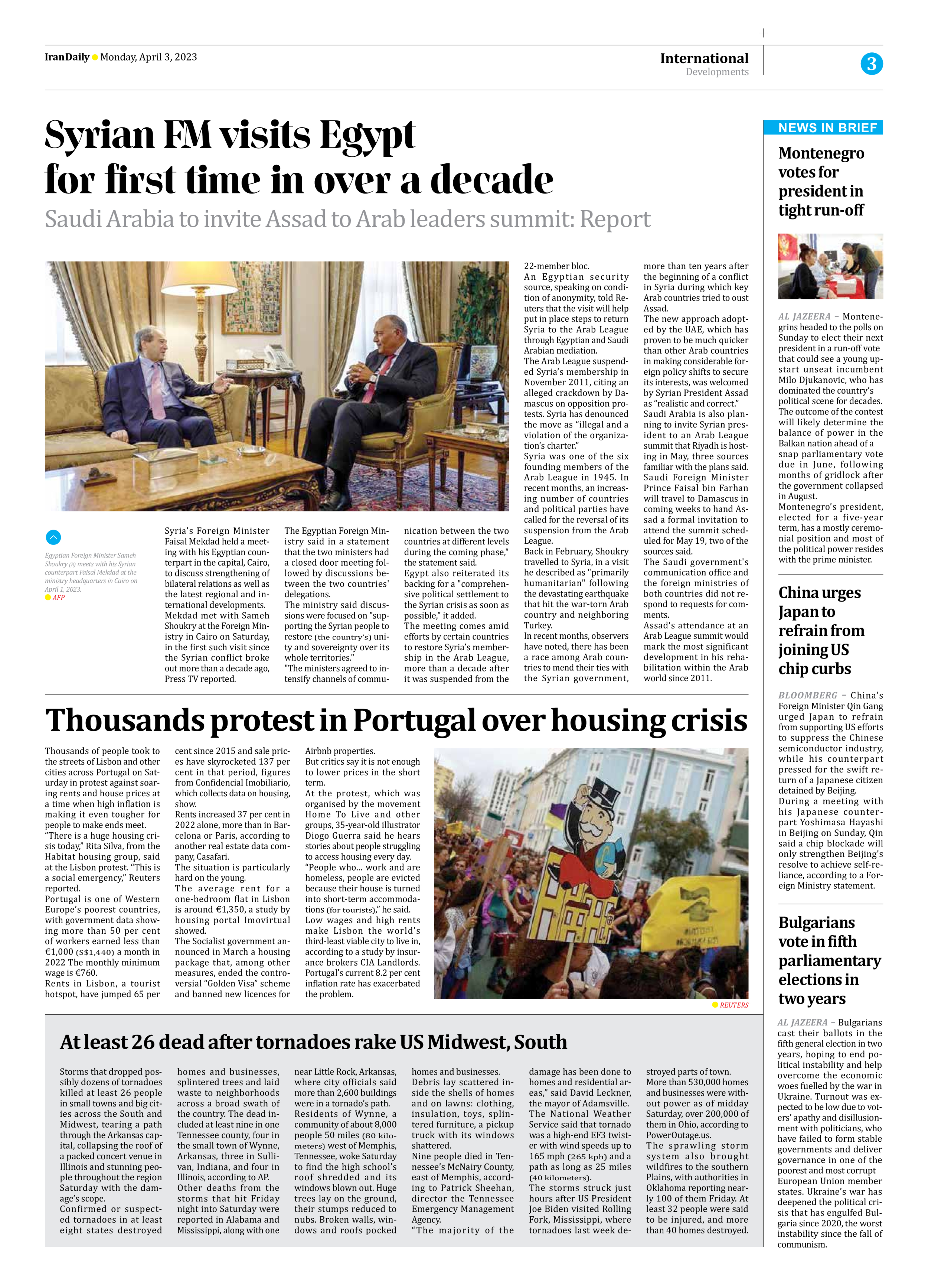
Thousands protest in Portugal over housing crisis
Thousands of people took to the streets of Lisbon and other cities across Portugal on Saturday in protest against soaring rents and house prices at a time when high inflation is making it even tougher for people to make ends meet.
“There is a huge housing crisis today,” Rita Silva, from the Habitat housing group, said at the Lisbon protest. “This is a social emergency,” Reuters reported.
Portugal is one of Western Europe’s poorest countries, with government data showing more than 50 per cent of workers earned less than €1,000 (S$1,440) a month in 2022 The monthly minimum wage is €760.
Rents in Lisbon, a tourist hotspot, have jumped 65 per cent since 2015 and sale prices have skyrocketed 137 per cent in that period, figures from Confidencial Imobiliario, which collects data on housing, show.
Rents increased 37 per cent in 2022 alone, more than in Barcelona or Paris, according to another real estate data company, Casafari.
The situation is particularly hard on the young.
The average rent for a one-bedroom flat in Lisbon is around €1,350, a study by housing portal Imovirtual showed.
The Socialist government announced in March a housing package that, among other measures, ended the controversial “Golden Visa” scheme and banned new licences for Airbnb properties.
But critics say it is not enough to lower prices in the short term.
At the protest, which was organised by the movement Home To Live and other groups, 35-year-old illustrator Diogo Guerra said he hears stories about people struggling to access housing every day.
“People who... work and are homeless, people are evicted because their house is turned into short-term accommodations (for tourists),” he said.
Low wages and high rents make Lisbon the world’s third-least viable city to live in, according to a study by insurance brokers CIA Landlords. Portugal’s current 8.2 per cent inflation rate has exacerbated the problem.







